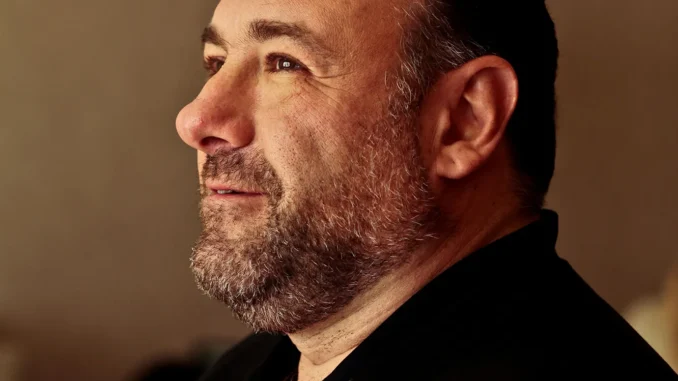
James Gandolfini, the actor who brought the iconic Tony Soprano to life in The Sopranos, is remembered not just for his groundbreaking role, but also for his complexity as a person. With his unexpected passing in 2013, Gandolfini left a void in the world of television that still resonates with fans and colleagues alike. Let’s take a deeper look at his life, the pressures of fame, and the enduring legacy he left behind.
The Complexity of a Beloved Character
Tony Soprano: A Reflection of Gandolfini
Tony Soprano was more than just a mob boss; he was a deeply flawed, multifaceted character who struggled with the weight of his actions and the burden of leadership. Gandolfini’s portrayal was nothing short of revolutionary. It transformed the way audiences viewed antiheroes on television, showcasing vulnerability alongside brutality.
David Chase, the creator of The Sopranos, recognized the depth that Gandolfini brought to the role. He noted, “He was really a good guy and really complicated.” This statement encapsulates the paradox of Tony Soprano, a character who embodied both charm and menace. Chase also hinted that there might have been aspects of Tony within Gandolfini himself, suggesting that the lines between actor and character sometimes blurred.
Invested in Authenticity
Edie Falco, who played Carmela Soprano, emphasized Gandolfini’s dedication to authenticity. “He was incredibly invested in making that character believable,” she shared. This level of investment often comes with challenges, particularly when the material is as dark and intense as The Sopranos. The pressures of leading a successful series can weigh heavily, and Gandolfini was no stranger to that burden.
Vince Van Zandt, a close friend and co-star, revealed that Gandolfini sometimes “disappeared” for short periods when the pressure became overwhelming. These moments of retreat highlight the toll that such a demanding role can take on an actor’s mental health.
The Personal Struggles Behind the Fame
Balancing Work and Life
While Gandolfini was a household name thanks to his work on The Sopranos, balancing his personal life with his professional responsibilities was a constant struggle. He often found himself wrestling with the emotional toll of portraying a character who navigated the complexities of family, crime, and morality.
Actors frequently bring their work home, and for Gandolfini, the challenge was no different. His ability to immerse himself in Tony’s psyche contributed to the character’s depth but also complicated his personal life. As Falco pointed out, being “diligent” in separating oneself from the character can be a difficult task, especially for someone as invested as Gandolfini.
A Legacy of Kindness and Generosity
Despite the pressures he faced, those who worked with Gandolfini remember him fondly. Michael Imperioli, who played Christopher Moltisanti, expressed his gratitude in a heartfelt tribute: “Forever grateful to have done so much work together, to have spent so much time in your company, and for all the generosity and kindness.” Such reflections underline the kind of person Gandolfini was—someone who extended warmth and camaraderie to his colleagues, even amidst the challenges of fame.
The Impact of Gandolfini’s Untimely Death
A Shock to the Industry
Gandolfini’s sudden death from a heart attack at the age of 51 sent shockwaves through Hollywood and the television community. It was a reminder of the fragility of life, particularly for those in the public eye. As fans mourned, many reflected on the profound impact his work had on their lives. The loss was felt deeply, not just for the actor he was, but for the brilliant talent he brought to the screen.
Tributes from Colleagues and Fans
The 10th anniversary of Gandolfini’s death saw a resurgence of tributes from his co-stars, friends, and fans. They took to social media and interviews to share their memories and the lessons they learned from him. The shared sentiments emphasized that his impact went beyond the screen—he was a mentor, a friend, and a source of inspiration for many.
The Enduring Legacy of The Sopranos
Cultural Significance
The Sopranos revolutionized television, setting a new standard for character development and storytelling. Gandolfini’s portrayal of Tony Soprano was central to this shift, paving the way for future antiheroes in series like Breaking Bad and Mad Men. His ability to elicit sympathy for a character so morally ambiguous changed the landscape of television forever.
Streaming Success and Ongoing Conversations
As streaming platforms like Max continue to host The Sopranos, new generations of viewers discover Gandolfini’s remarkable performance. Conversations about his work often lead to discussions about the complexities of morality, family dynamics, and the struggles of mental health—issues that Gandolfini himself grappled with.
In the documentary Wise Guy: David Chase and The Sopranos, available on Max, fans can delve even deeper into the show’s creation and the legacy of its star. The film offers a glimpse into the dynamics between the cast and crew, highlighting the collaborative spirit that defined the series.
Conclusion
James Gandolfini was not just Tony Soprano; he was a talented actor who embodied the complexities of human nature. His dedication to authenticity, coupled with the struggles he faced, makes him a relatable figure for many. As we remember Gandolfini, we also celebrate the legacy he left behind—a legacy that continues to influence television and inspire new storytellers.
